Conferences in Europe
Prague Gaming & TECH Summit 2023: Charting the growth of Esports in CEE
Ahead of our sold-out Prague Gaming & TECH Summit 2023 next week, we sat down with some of the brightest minds in Europe to talk all things Esports and its potential for the CEE region.
In one of our most insightful interviews this year, we brought together Peter Rippel Szabo (PRS), Associate at Bird & Bird, Amir Mirazee (AM), Managing Director and COO at Bayes Esports, as well as Dimitris Panageas (DP), Group General Counsel at Kaizen Gaming to get the latest on Esports’ growth.
Covering everything from Ukraine, localised regulation, market demographics, state licensing and taking on traditional sportsbook spend, this one’s not to be missed!
To kick things off, let’s talk about the demand for Esports in CEE – how much does the region stand out in terms of growth potential vs the likes of Scandinavia and Western Europe?
AM: It’s a unique environment and of course being Bayes, we can gauge that from a good standpoint with over 100 betting clients globally and 200 in our extended network. On the CEE side, our major partners are GG.bet, DATA.BET and BETER, and we’re seeing considerable volume. This is particularly the case for Counter Strike – and players love new titles.
The one issue we have right now is the changing political dynamics. While Ukraine and Russia used to offer great Esports teams, as well as serving an anchor for satellite nations around them (Poland, Baltics etc), this equilibrium has of course been shifted, and it now needs to settle at a new one. This is especially the case for Ukraine, which really was the epicentre in the CEE region for Esports. Added to that is Russia of course now being shut out of the market, with operations now needing to be re-established to find a new hub to anchor the vertical’s development. In my view – the Czech Republic will likely be a key component.
PRS: From my base in Hungary, I can certainly say that across CEE organised tournaments are very strong – with growth proving very organic, and indeed, spontaneous. There’s not yet big money in most of the tournaments’ prize pools, but they are certainly crammed with amateur players who are very ‘plugged-in’ online and have a real passion for Esports. This goes for both the relevant products and enjoyment of that entertainment. Also, it is worth mentioning that in Hungary more established clubs with strong foundations across various sports have engaged with Esports (e.g. through establishing dedicated esports departments and training players professionally). Universities and other non-profit organisations have also started to study thoroughly the various physical, psychological and other aspects of Esports.
From a legal perspective what is needed for growth is a clear regulatory environment (dealing with the status of esports, i.e. whether it is a ‘normal’ sport, whether it has a special status, or something in between, as well as covering issues like requirements for tournament organisation, player safeguarding and integrity). This would also help alleviate some aspects negatively perceived by the general public (like lack of exercise, addiction or abuse). Of course, talking about Scandinavia and Western Europe – the one variable in comparison with CEE is consumer spend and the resulting market size which will likely never reach the same level in the East.
DP: For myself, and indeed given our extensive experience at Kaizen, I would say the demand is there to see. It’s not a new way of betting, but rather a new type of possible future verticals, and a set of betting markets to enjoy. As it’s still in the emerging stage, I would say it’s not yet considered a fully established ‘traditional’ vertical like sportsbook, lottery, live casino and others.
Looking at demographics, they are without a doubt smaller than more established verticals, which we need to distil into sub-segments to better understand on a micro level. Factoring in how fast the CEE market is changing, especially with the likes of Hungary (which was until recently a state monopoly), I would definitely say that we have every potential for Esports to really take off in the next 5-10 years.
On a macro level, the major growth blocker that needs to be overcome is that of regulation. Esports needs to be properly and specifically regulated as both a sport and from a betting perspective – this is essential in order to enable it to become a fully established vertical in its own right. So, in summary, it’s emerging fast and gaining traction, but still a long way to go.
What do you see as the key driver for demand for Esports betting in CEE? From a regulatory perspective, do you see CEE jurisdictions as being more open to Esports betting?
AM: Agreeing with Peter in his first answer, I would certainly say it’s a unique generation in CEE and that’s certainly why Esports has grown so much here. Online gaming, and indeed video gaming, has created the generation we’re seeing now, as well providing them with a connection to the rest of Europe and the wider world. Without a doubt, we can say that the ‘internet generation’ in their 20s and 30s have very much been shaped by that culture, whether that’s Call of Duty, memes, and everything else. On the regulation front, again, I agree also – it needs to be regulated as a sport. Germany, for example, does not even acknowledge Esports as a sport, which as a consequence, means it can’t even be bet on yet. That needs to change.
PRS: It’s a complex question but with plenty of potential in CEE. Gambling, betting and generally games of chance have similar basic legal concepts when it comes to regulation across Europe (national regulatory frameworks may differ of course), therefore, CEE jurisdictions can be as open to Esports betting as other countries. I think the key driver is simply how much Esports will gain in popularity in the future, for the more popular certain Esports titles will be the more will the demand be for Esports betting. Also, I think if Esports would be recognised explicitly as a sport and/or it would be a regulated activity in a CEE jurisdiction, then I believe it would likely facilitate the demand for Esports betting in that jurisdiction.
DP: Indeed. The key factor that you need to drive demand (let’s say from a sample set of the 10 major CEE countries), is that they do not yet specifically regulate Esports. Hungary, as Peter has mentioned, is becoming part of that change, so we’re seeing the opportunity for it to become a conducive environment for development. In my view, the regulatory framework for most of CEE is still vague; and as long as it’s principally viewed as a betting market rather than a sporting discipline in its own right, it will stay as that.
Taking the wider perspective, any law and/or regulation will take a minimum of 6-12 months to be adopted and following that – you’ll then need extensive marketing and commercial communication expenses to then push Esports into the mainstream. Without a doubt, however, looking at CEE demographics, the unique composition of their audiences holds plenty of potential. What makes it special is that while it is niche as a sport/product, it’s not the same as niche traditional sports, such as handball in Germany.
Rather, you have a fast-growing product that can easily enter the mainstream as it transcends borders and can offer penetration principally via social media, where it is already very popular. I am sure that with the proper marketing and investment, Esports will create a snowball effect that will allow it to become a mainstream vertical by itself soon enough.
When it comes to being a complementary product to traditional sportsbook spend, how is Esports fitting into the mix and is it cannibalising from traditional sportsbook?
PRS: I’d say that Esports and traditional sportsbook can, and do, complement each other, especially if popular traditional sports (like football or basketball) are played via video games (FIFA or NBA2K) in organised Esports competitions which traditional sports fans can easily perceive and understand.
So, even if audiences are of course very different, you’ll see crossovers when it comes to interests. Using Hungary as an example, the state-owned betting & lottery operator (Szerencsejáték Zrt.) launched betting on esports competitions in 2020 due to the lack of traditional live sports events resulting from the Covid-19 pandemic. It has quickly become one of its most popular betting offerings.
An interesting point too is the ability to convert players to new verticals, and as a result, increase engagement and incremental spend. For example, you’ll have a millennial customer use football as a platform for introduction, and then while waiting for the match to play out for 90 minutes (or indeed after the final whistle), he / she will then give Efootball or another Esports activity a try – which is a great way of introducing the product.
AM: From my perspective, if we’re talking about FIFA and other Esports, these worked superbly well during COVID as a substitute product for those looking to replicate the missing sporting schedule, with nothing happening aside from (as I recall), the Belarusian Premier League. With the likes of League of Legends and Counter Strike, you have a very different demographic / audience – and you’ll find them in different places rather than traditional sportsbook.
As a result, I believe you need to look at providing something different to attract players. Take a look at Bet365’s Esports offering for example, it works surprisingly well for a UX that has evidently been derived from traditional sports. However, there’s much more room for improvement in the coming years. It’s easy to see the use-case for this, looking at all sports betting viewership right now, everything’s declining aside from Esports, so it’s an opportunity to be capitalised on.
We’re also seeing demographics change rapidly, while Esports was previously only for the 20-25 age group, it’s now becoming much older, so you’re closing that monetisation gap. If you want to capture the interest of this fast-growing demographic, you need to reformat the UX to cater to that. So yes, without a doubt, Esports is now becoming a product that can drive traffic in its own right through new audiences, without cannibalising spend from traditional sportsbook.
DP: For me, it depends on the definition of where cannibalisation starts from. When new products are introduced, they certainly drive interest and add to engagement, but in theory that will also bring a decline in engagement for traditional alternatives as overall sportsbook spend is going to be finite.
The positive that Esports brings however, is that it can complement well, given it has a very different schedule to traditional sportsbook. Tournaments taking place across the globe (for example in Asia) are during the evening , meaning it’s during the day in Europe – enabling Esports to boost sportsbook spend both before and the day after evening football matches such as the Champions League mid-week.
Taking the longer view, there is a greater risk of cannibalisation if we see more European Esports tournaments taking place during the evening (at the same time as major football matches), which will likely happen in the next 5-10 years. This will create a tipping point where it becomes more popular to bet on than evening football matches.
Looking at the delayed Euro 2020 held last year, can operators use the standout success of Efootball during the tournament as a reason to engage more players during the weekend’s sport fixtures?
DP: I believe Esports will always hold plenty of potential as a complementary product during major events such as the Euros, where we see heightened betting activity and greater overall spend. However, the challenge is always going to be taking this into the mainstream and having it considered as a regular fixture week in, week out. In my view, it is very possible that this could translate well into a complementary product that fills the gaps between sporting fixtures, especially for those who like to be pre-match and not in play. Given a football match lasts 90 minutes, you have plenty of space to fill over the 90 minutes after pre-match bets are placed. If you can identify and incentivise that opportunity, then I believe there is huge potential in the long term.
AM: Also, as we’ve covered already – the audience you have for Efootball- is completely different to Counter Strike, League of Legends and the like, so in effect we’re only talking about 50% of the potential Esports audience.
Let’s take Europe as a market to speak on a macro level and place Efootball in isolation. Regulation for a start is going to be key, making sure that product is available and acceptable. That’s something in particular we’d need to see in Germany with the Bundesliga, as Esports is not yet regulated to be a betting market. Looking further west towards the UK, there’s far less of an overlap, due to player preferences and composition of audience. However, if we return to the CEE, then yes, without a doubt I see plenty of potential here for operators to really test this out as it’s something the new generation of players are very receptive to.
PRS: To add to that, I would certainly say in many ways we’re looking at an area of spend (and indeed audience) that are traditionalists when it comes to football. However, if we look at the new generation and their social circles and familiarity with the online environment, they are shaped by a very different world than what older generations had for football growing up as a primary source of entertainment.
So, without a doubt, we’ll see a very different trend towards the Esports landscape over the next decade. Whether that’s for Esports as a complementary product or one in its own right, I believe it will be inevitable that it becomes an area of engagement with traditional sports fixture in the decade to come. This is especially the case if Esports will be regulated clearly, as well as Esports tournaments being organised regularly, enabling online gaming operators to follow that lead and invest in technology and commercial communication dedicated to Esports.
Last but not least, looking at the big picture – what’s your take on how Esports is going to develop in CEE over the next five years, how much more do you see it gaining popularity?
DP: I believe it is going to develop, and it will no doubt gain traction. But in my view, it won’t take off immediately. The next few years will likely see Esports continue as a complementary product that will enable operators to diversify and upgrade their offerings. The new generation coming online will power this, and with an extensive spectrum of events around the globe, and the 24-7 betting that it brings, it can scale fast.
However, for that to happen, we also need to see more investment in the vertical for it to become more established. For a start, we need more advanced trading models that can enable operators to offer a much broader spectrum of Esports betting markets to attract more players. We’re already seeing that happen in real-time, and even in the last three years, there’s been a real surge in terms of managed trading services for Esports and the provision of data. As we’re seeing truly specialised companies for this provision begin to corner the market, growth will inevitably become even more exponential, with a ‘hockey stick’ style adoption curve.
AM: I agree. There’s plenty of potential. We can certainly say that outside of the present conflict taking place between Russia and Ukraine, there’s a stable trend towards growth, aside from the recent Parimatch / Ukraine news this week. I’m confident it’s only going to keep growing for all the reasons we’ve covered above.
All of this is fuelled by the unique audiences of the region, and indeed their demand for entertainment. If we compare the potential of Western vs. Eastern Europe, then without a doubt, I believe that CEE is the most likely to emerge as the continent’s major player. Given our position on the market as one of the world’s leading Esports providers, I believe that Esports is exactly what you make of it – and if you take a proactive view and approach, the market share is there for the taking.
PRS: I concur with Amir and Dimitris, I believe it’s only going to grow – all the foundations are there in CEE to make that happen; demographics, interest, increasing awareness of relevant brand values and an established understanding of the mechanics. In the short-term, I don’t believe we’ll see major displacement of the most popular traditional sports or radical shifts in market trends. Longer term, we’ll to see much greater adoption that will no doubt scale over as exponential growth really begins to emerge.
Conferences in Europe
CasinoBeats Summit 2024: Providing the Tools to Balance Innovation and Regulation in the Digital Age
As the industry seeks optimal methods to responsibly integrate innovative technology, the upcoming CasinoBeats Summit will provide delegates with an exploration of the latest emerging technologies, regulatory frameworks and future trends to ensure a safe yet immersive gaming experience for players.
The Industry and Leadership track will take place across both core days of the CasinoBeats Summit, May 22 to 23 at the InterContinental Malta. Panel sessions will delve into key topics such as global gaming regulations, the evolving digital payment landscape and an in-depth exploration of the world of M&A.
The panel entitled Responsible Gambling in the Digital Age will delve into the latest responsible gambling initiatives influencing the digital landscape. Expert speakers Pedro Romero (RG Consultant and psychologist, University of Gibraltar), Matthew Curtis (Head of Responsible Gaming, L&L), Georgia Wise (Head of Responsible Gaming, PlayNorth), Eduards Jakubovs (Head of Responsible Gaming, Betsson) and panel moderator Maris Catania (Senior SG Consultant, SG: Certified) will analyse the impact of landmark regulatory guidelines such as the 3.4.3 regulation on remote customer interaction and the United Kingdom’s ‘white paper’ as well as discuss the latest distinctions between regulated, grey and black markets.
The Industry Trends and Future Predictions panel will look at the future of the casino sector, examining upcoming industry trends and their potential impact. Industry leaders Itai Zak (Executive Director, Digicode, and former/ex-Chief Executive Officer, SBTech), Matthew D’Emanuele (Chief Executive Officer, Yolo Entertainment), Alexander Martin (Chief Executive Officer, SKS365), Inesa Glazaite (Chief Commercial Officer, iGaming Platform), Dmitry Starostenkov (Chief Executive Officer, EvenBet) alongside panel moderator Martyn Elliott (Project Director, SBC Media) will offer insights into key emerging markets, innovative game formats and strategies to effectively cater to evolving player needs.
Commencing the second day is the panel entitled The Evolving Landscape of Gaming Sector Payments, which will explore the current state of the industry’s payment sector. Expert speakers Sean Spiteri (Head of Payment Solutions, PressEnter), Enrico Giancaterina (Managing Director, Funtech) and Ian Perrygrove (Chief Risk Officer, Kwiff) will discuss the current payment innovations driven by the casino sector, analyse the future of digital payment methods and the potential risks of such rapid innovations.
The Navigating the Future: Global Gaming Regulations panel will explore strategies to effectively address the challenges posed by current and future global regulations. Regulator representatives Aideen Shortt, (Advisor to the Minister, Curacao), Andrew Lyman (Gambling Commissioner and Executive Director, Gibraltar), Andrew Rhodes (Chief Executive, Gambling Commission) and Brandon Debattista (Deputy Chief Regulatory Officer, Malta Gaming Authority) will provide insights into their respective markets whilst assessing the possibility of a unified global regulatory standard and the importance of cross-market collaboration.
Additionally, track attendees will have the opportunity to garner insights into the world of acquisition and investment during an exclusive IMGL-led masterclass, Acquisition Strategy: Gearing up for Investment, which is set to take place on Thursday, May 23, the second core day of the event.
For groups of three or more, you can purchase the Group Pass Ticket and gain access to all three days of the CasinoBeats Summit for the discounted price of €400 per person (a saving of €200 per ticket). Additionally, operators and affiliates can apply for a free pass to the event.
You can keep up-to-date with the latest news, speakers and exhibitor additions and conference content by subscribing to the bi-weekly CasinoBeats Summit LinkedIn newsletter.
The post CasinoBeats Summit 2024: Providing the Tools to Balance Innovation and Regulation in the Digital Age appeared first on European Gaming Industry News.
Conferences in Europe
Success for the First Edition of the Italian Gaming Expo & Conference
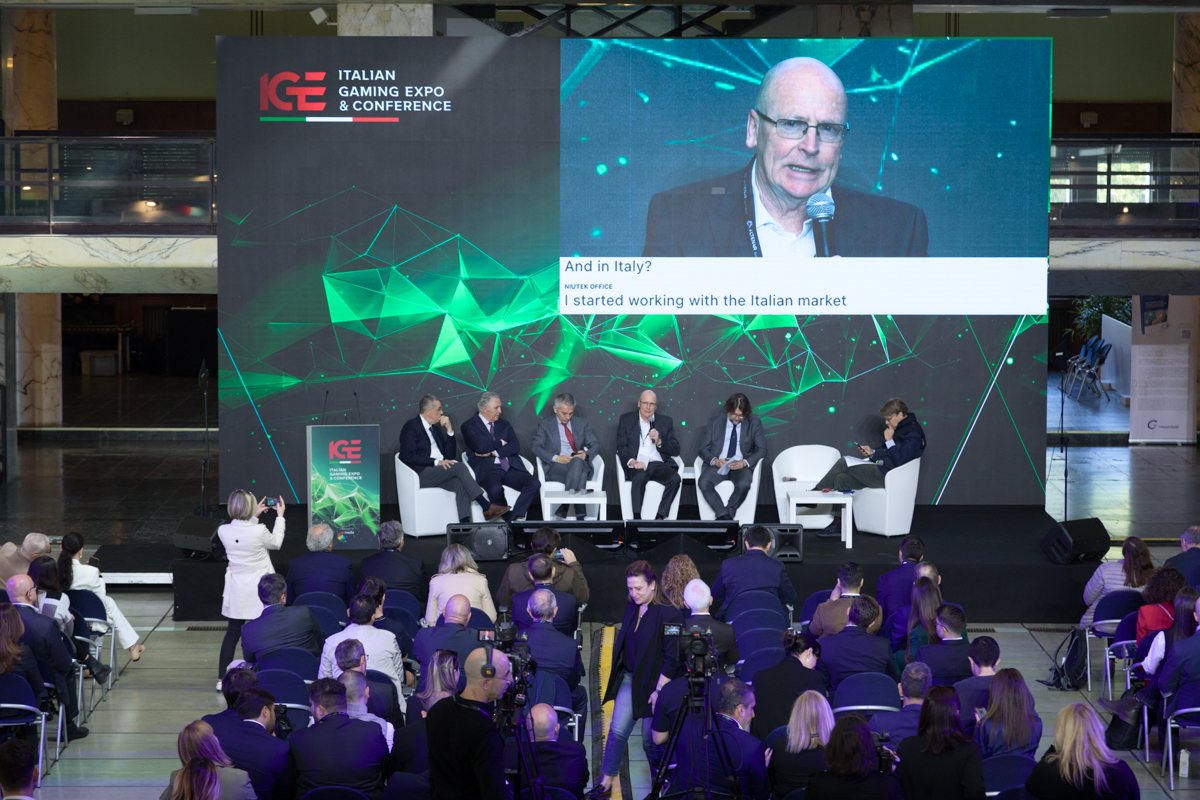
The two-day conference dedicated to the Italian gaming market registers over 1,200 participants and gathers international acclaim: new appointment in April of 2025
The first edition of the Italian Gaming Expo & Conference (IGE) in Rome entitled ‘The sustainable future of gaming’ dedicated to the Italian gaming market is delving into the reality of a sector whose importance is recognized internationally together with institutions, experts, academics, opinion leaders and influencers. With the participation of around 1,200 delegates from over twelve different countries and the presence of multiple political, institutional and media personalities.
IGE Figures:
Over 130 speakers coming from several countries in Europe and the world. More than 35 sessions of content. Over 50 companies involved including partners and exhibitors. Over 20 political representatives and more than ten institutions represented including Agenzia delle Dogane e dei Monopoli (the Italian gaming regulator), CONI, AGCOM, the Ministry of Home Affairs, the Ministry of Agriculture, Food Sovereignty and Forests (MASAF), the State Police, Italian finance police, Europol and Interpol as well as the Government and Parliament with a large presence of representatives from the Chamber and Senate. To which we must add foreign regulators such as the United Kingdom’s Gambling Commission, the Malta Gaming Authority (MGA) and various international entities such as EASG, G4, the International Masters of Gaming Law (IMGL), the International Association of Gaming Regulators (IAGR) and the United Lotteries for Integrity in Sports (ULIS). These are the numbers of the first edition of IGE. With a presence that reached 1,187 delegates in the two days of the event.
At the heart of the event, the main topics that will drive the world of legal gaming in the coming months and years and the definition of the approach guidelines for companies that want to look to the future to innovation to sustainability. The reform of public gaming, the sustainable future of gaming, the strength of promotions between reorganization and consumer protection and the Italian model as a reference to ensure the integrity of sport in addition to the reform of horse racing. These are some of the topics discussed during the first day.
One of the primary goals of IGE is to allow participants to meet and discuss with experts, opinion leaders, scholars and some of the best C-levels at national and international level to find new ideas and solutions for the growth and development of their business. And it can certainly be considered achieved, taking into account the broad consensus recorded by the event, which also recorded the presence of authoritative exponents of the world of information, from the television presenter and deputy director of Il Giornale, Nicola Porro, to the deputy director of the La7 news program and host, Andrea Pancani, to the Director of RaiNews24, Paolo Petrecca.
“The Agenzia delle Dogane e dei Monopoli, as a regulatory body for the public gaming sector, has always been at the forefront in the defence and promotion of the principles representing the cornerstones on which the gaming industry is based,” the Central Games Director for the Agenzia delle Dogane e dei Monopoli, Mario Lollobrigida, said. “Those of legality, safety and protection of consumers and public order. For this reason, the agency welcomed this Italian gaming expo and conference event as it is exactly focused on these communication values. In particular, we appreciate the highly scientific profile of the event, thanks to the participation of famous personalities and leading universities such as those of the Luiss, Bocconi and Politecnico di Milano, who will participate in these two days of debate.”
As regards the pressing current issues that animated the IGE discussion, the reform of the sector just launched by the government was undoubtedly at the center. “The new law is a chance for the state to undoubtedly find some additional resources from the tax levy, resources that allow the administration to make its choices,” Marco Osnato, President of the Finance Commission, Chamber of Deputies, said. “With this decree we have managed to achieve a balance of interests that is healthy for everyone. We always start from the protection of the citizen, the use of effective, traceable and exact legal services also in compliance with legal systems that have become more limited with a view to protecting and professionalising companies. A more peaceful approach.”
According to Ettore Rosato, COPASIR Secretary, member of the Foreign Affairs Commission, Chamber of Deputies: “Gaming is a sector that I have been dealing with for a long time and I believe it is essential that politics recognize its value both in economic terms from tax revenue to the number of employees and companies on the market to the terms of legality and social impact. Public gaming is an obstruction to organized crime and is a controlled system, which also allows us to control the risks of gambling addiction that may arise.”
However, pay attention to all the topics of interest and current affairs that revolve around the sector, starting with the ban on advertising, which is still in force today. Laura Aria, AGCOM Commissioner, declared: “According to article 57 of the Treaty on the Functioning of the European Union, the provision of gaming service cannot be completely banned. Moreover, managing highly addictive phenomena such as gambling addiction with a prohibitionist approach towards the medium, ie gambling, does not seem to be an effective solution. I believe that a better awareness campaign and inter-institutional cooperation is needed. Legislation and monitoring of gambling allow for better management of gambling addiction. Therefore, investing in prevention is the central point.”
But there was also talk of match-fixing and the Italian intelligence network based on the betting sector that represents excellence on a global level. According to Ugo Taucer, Attorney General, CONI: “Even before the Macolin convention, there is an Italian tradition of discussion between police forces, institutional bodies responsible for games control, private operators, federations and sports through the Luiss office, which establishes institutional cooperation and an exchange of news. There is a wide scope for exchange and discussion, a strong correspondence between the various areas.”
There is a lot of content relating to responsible gaming with particular attention to the investigative works presented in preview by the FAIR Foundation, as its President, Matteo Caroli, explains: “In Italy, there are no independent foundations dedicated to responsible gaming. With the Fondazione FAIR, we want to promote a gaming culture that focuses on prevention as well as respect and people protection through the development of lines of scientific research, studies and research. We also aim to promote cooperation and study activities with qualified third parties, thus adopting a multidisciplinary approach open to discussion with everyone.”
According to Alessio Crisantemi, co-founder and Gn Media President, Organizer of IGE: “The gaming industry is a real source of talent and cradle of true excellence, especially in Italy. In this sense, we are proud of the success of this event, which offers a precious opportunity for discussion and training between stakeholders, institutions and operators on crucial issues for the future of the sector such as sustainability and innovation. But innovation is not for its own sake, neither only oriented to profitability or product appeal, but applied above all in the search for solutions and systems for consumer protection and safety. Therefore, these two days of meetings and discussions are even more important in order to give proper prominence to a sector that needs to be promoted and enhanced as it can substantially contribute to the growth of the country but in a sustainable way.”
The event, which aims to be an annual event for the industry, closed by announcing the next dates of April 9 to 10, 2025.
The debut of the Italian Gaming Awards:
The first edition of IGE was crowned by the gala evening of the Italian Gaming Awards hosted by the Director of RaiNews24, Paolo Petrecca, and the actress Giorgia Fiori, who celebrated the excellence of gaming in Italy awarding 19 prizes to operators, suppliers and other categories. The complete list of winners can be consulted at this address: https:/ /ItalianGamingAwards. com/IGA2024/it/page/iga-2024-winners.
The post Success for the First Edition of the Italian Gaming Expo & Conference appeared first on European Gaming Industry News.
Conferences in Europe
ITL Spain head to Madrid for the largest gaming exhibition in the Spanish calendar

Innovative Technology (ITL) have announced their participation at the largest global network of gaming professionals in Spain. From 7-9 May 2024, Madrid will become the centre of the Spanish gaming industry, celebrating the 40th anniversary of Feria Internacional del Juego (FIJMA).
FIJMA is the most important event in the leisure and gaming industry in Spain where the main companies, manufacturers and experts in the industry gather to learn about the latest slots and gaming equipment innovations. The Spanish team at ITL will be exhibiting their solutions on stand A49 and plan to have their latest note recyclers and coin handling products centre stage, as well as demonstrating how their biometrics solutions can be utilised to benefit the gaming industry to prevent underage gambling.
Jose Garcia Escudero, General Manager for ITL Spain said, “We are looking forward to showing how combining our compact note recycler (NV22 Spectral) and advanced coin recycler (SMART Coin System) gives the best fit for cash handling efficiency for gaming machines in Spain. These solutions now dominate the Spanish gaming market giving operators considerable float management savings, fewer refills, and a massive reduction in coin starvation for improved machine uptime. We’ll also show the new NV4000 mixed denomination note recycler to the Spanish gaming market for the first time, ideal for high volume applications like change and redemption terminals.”
ITL have a range of AI-powered biometric solutions which perform accurate age verification at gaming venue entrances or integrated in gaming machines.
Continuing Jose said, “We will also have our age check devices on the stand for visitors to demo which can help operators prevent someone potentially underage or even self-excluded trying to play a machine or access an age restricted area. ICU Lite can be fully integrated in a gaming machine or betting terminal to automatically estimate age to prevent minors from playing. MyCheckr can be utilised at 18+ entrances to prevent access. Both devices have a one-off cost with no subscriptions and no internet required. Our technology is affordable, available to all and trusted, with no biometric personal data stored.”
Concluding Jose said, “We have very strong relationships with the Spanish market and we’re proud to know that our products will be displayed on a number of stands from our long standing customers. We’re looking forward to seeing everyone in person in Madrid and we welcome you all to stand A49.”
The post ITL Spain head to Madrid for the largest gaming exhibition in the Spanish calendar appeared first on European Gaming Industry News.
-
Africa3 weeks ago
BMM Testlabs Continues Its Expansion in Africa with New Licenses in Botswana and Nigeria to Test Land-Based and Digital Products
-
Australia3 weeks ago
VGCCC Fines Bookmaker MintBet $100,000 for Repeat Breaches of its Responsible Gambling Code of Conduct
-
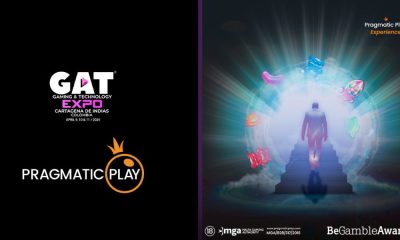
 GAT Expo4 weeks ago
GAT Expo4 weeks agoPragmatic Play Prepares for GAT Cartagena Gaming Week 2024
-
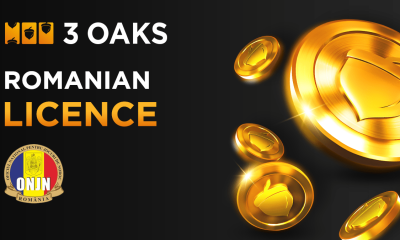
 Compliance Updates3 weeks ago
Compliance Updates3 weeks ago3 Oaks Gaming extends European reach with Romania licence
-
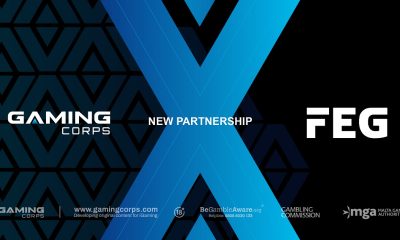
 Central Europe3 weeks ago
Central Europe3 weeks agoGaming Corps makes key European addition with Fortuna Entertainment Group partnership
-
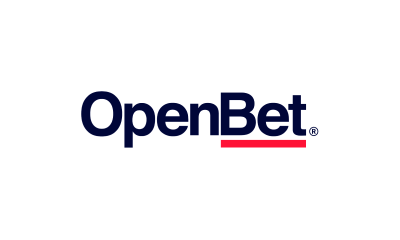
 Press Releases1 week ago
Press Releases1 week agoOpenBet Powers Record-Breaking 100,000+ Peak Bets per Minute at Grand National 2024
-

 Africa3 weeks ago
Africa3 weeks agoIESF African Regional Qualifiers Host Announced
-
Africa3 weeks ago
KingMakers’ Nigerian operating business, BetKing, selects Genius Sports to power growth with in-play trading services




